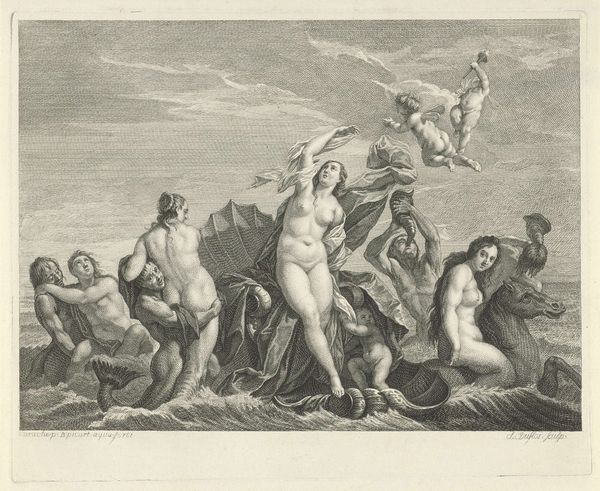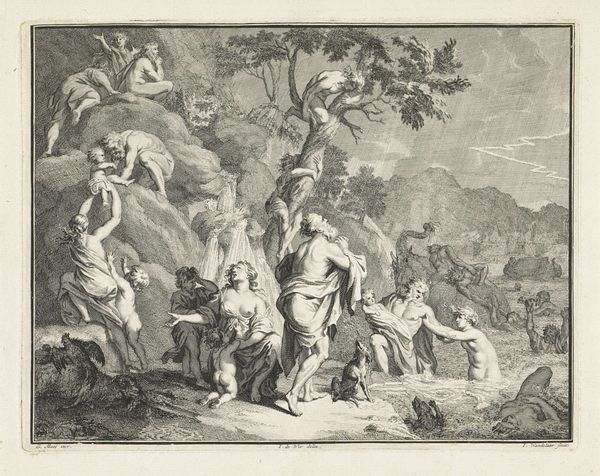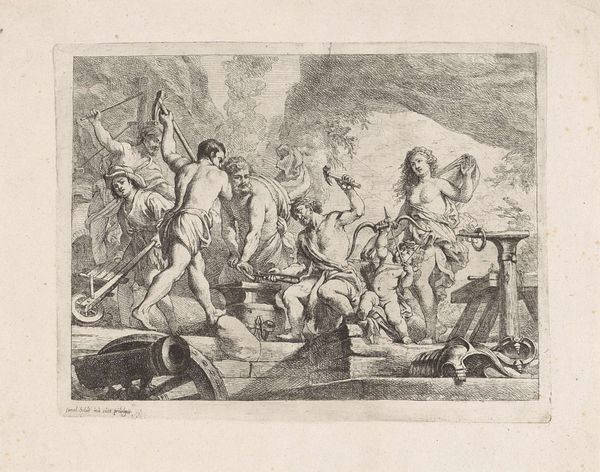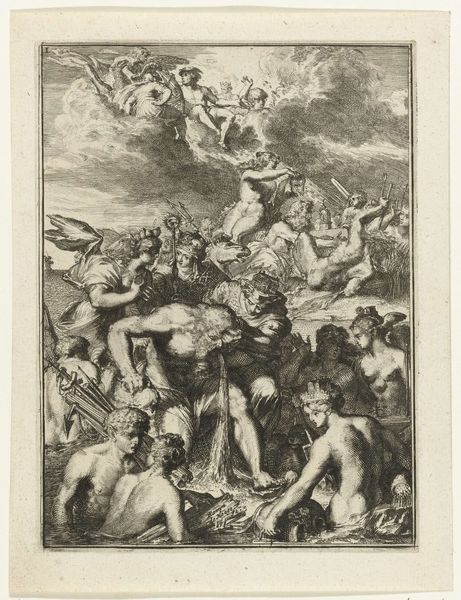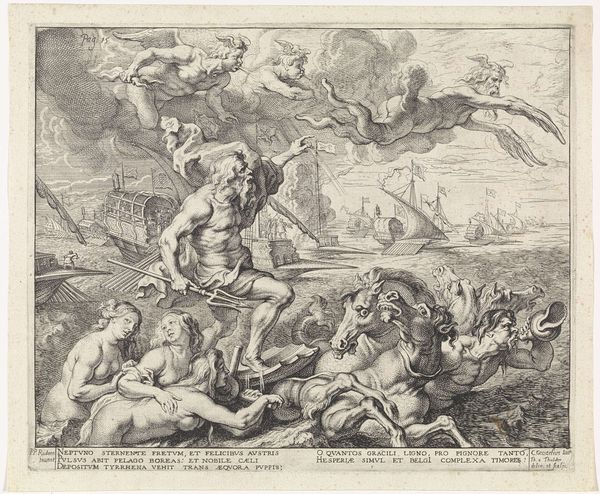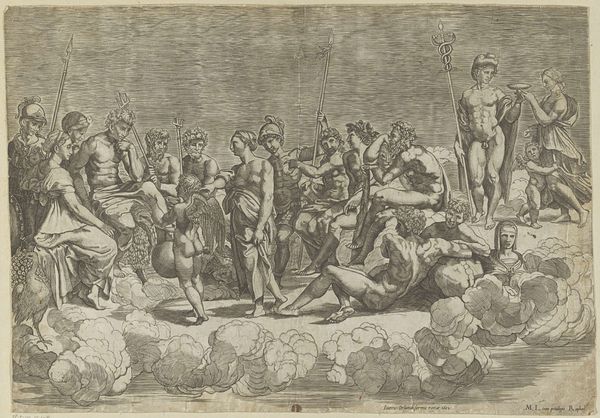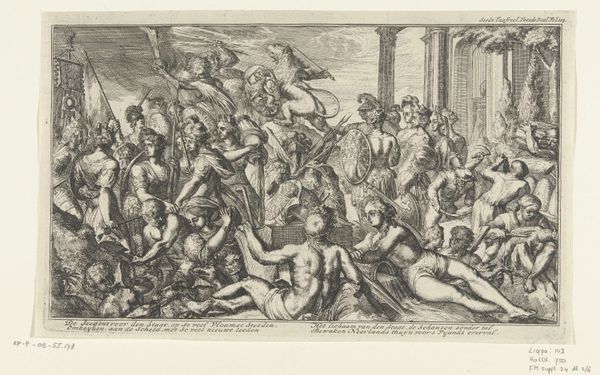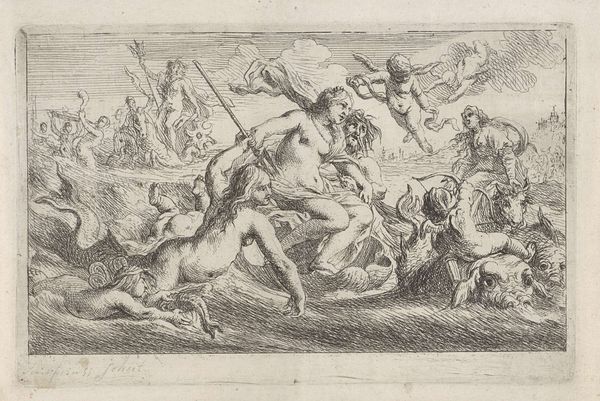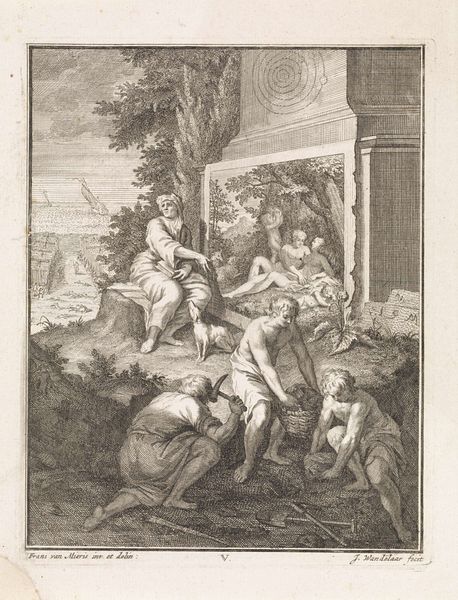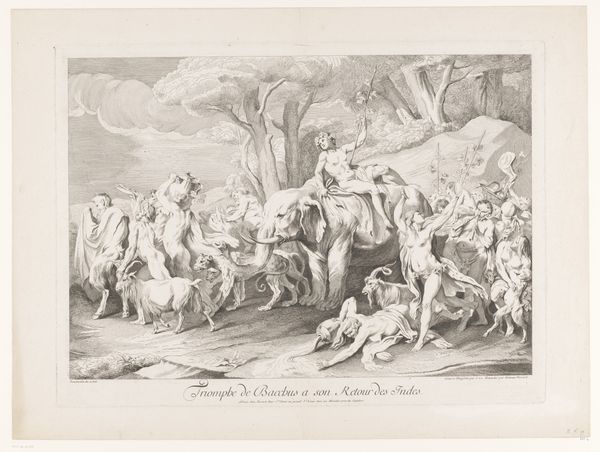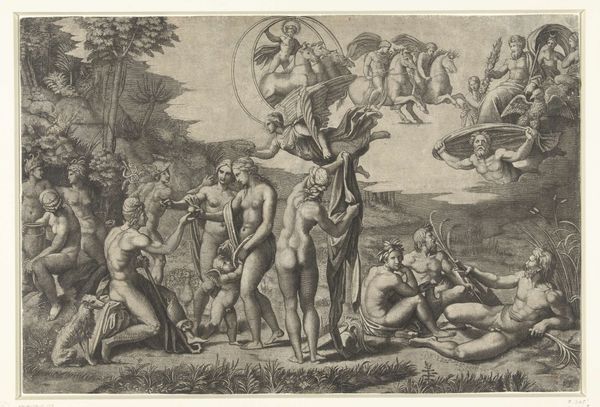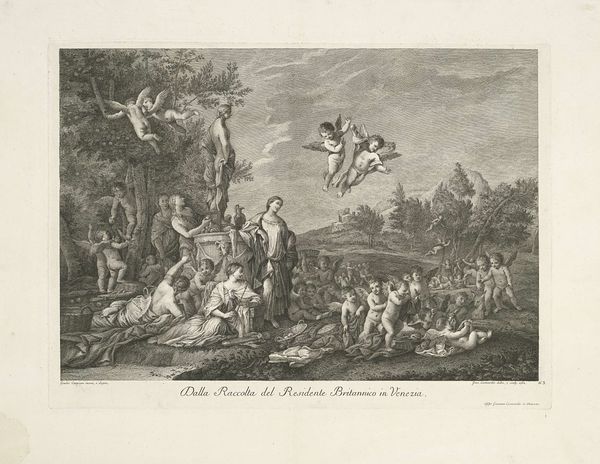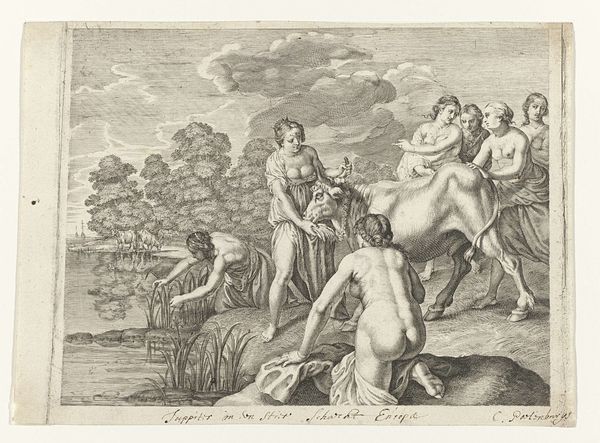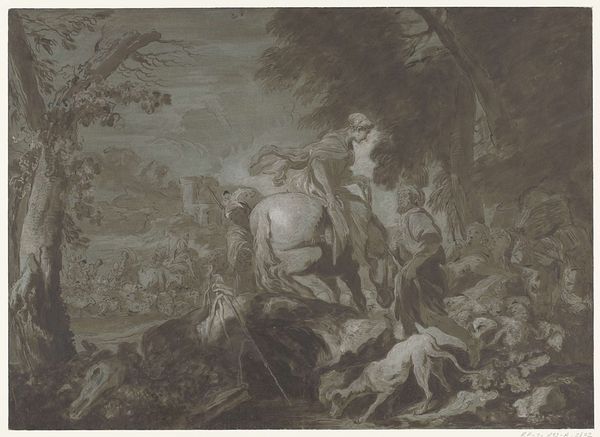
print, engraving
#
baroque
# print
#
old engraving style
#
figuration
#
history-painting
#
engraving
Dimensions: height 233 mm, width 290 mm
Copyright: Rijks Museum: Open Domain
Bernard Picart created this engraving, "Triumph of Galatea," likely in the early 18th century, using a painstaking process of incising lines onto a metal plate. The image's fine lines are a direct result of the engraving process, demanding immense skill and time, with each mark meticulously carved to capture light and shadow. Look closely, and you’ll notice how the varying densities of lines create depth and volume, giving form to the figures and the tumultuous sea around them. Engraving was not merely a reproductive technique; it was a highly valued craft, blending artistic expression with precise technical ability. These prints made art accessible to a wider audience, democratizing images of classical myths and stories. Consider the labor involved and the cultural value placed on skilled handwork. Picart’s print bridges the worlds of high art and skilled craft, reminding us of the social and economic context in which art is produced and consumed.
Comments
No comments
Be the first to comment and join the conversation on the ultimate creative platform.
